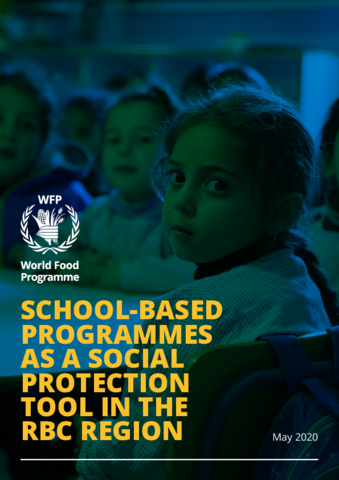
School feeding programmes represent one of the largest safety nets in countries across the region – measured in terms of coverage – in the broader framework of national social protection policy and programmes. Social protection aims primarily to protect members of society from shocks and stresses over the lifecycle – school feeding can support the early part of that. Many countries in WFP’s Middle East, North Africa, Central Asia & Eastern Europe region are considering social protection reform and exploring options to improve coverage and adequacy of national programmes. Such reforms can, in principle, offer a good opportunity to invest in school feeding programmes and maximize their contribution to social protection by considering certain linkages and design features. This brief outlines how strengthening linkages between school feeding programmes and social protection can maximize the benefits of National School Feeding Programmes (NSFPs) as powerful safety nets contributing to the development of human capital.
